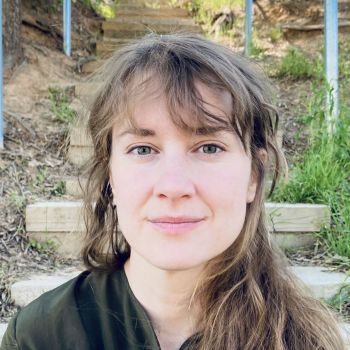Duke Initiatives for Theology and the Arts (DITA) this year welcomes the largest cohort of incoming Th.D. students: Andrew Hendrixson, Sarah Neff, and Jon Mansen. Their research will cover a variety of scholarly fields and interest, from rap music to novels to metaphysics and aesthetics.
Hendrixson says his research springs from his previous work as a writer and a visual artist, as well as his diverse interdisciplinary educational background, which includes English, fine art, theology and philosophy.
“I am interested in finding generative ways in which to articulate something of the work that the arts do—not the arts as didactic illustrations nor as misty notions of creativity, but the arts as disclosive, humanizing, and necessary,” Hendrixson explains. “I am interested in finding ways to recover the reality of metaphysics as a central framework in aesthetics engagement rather than the sheepishly regressive addendum to which it is frequently relegated. In short, I want to help people believe again in the necessity of poems and paintings and to take seriously the theological implications that live there.”
Neff’s own research focuses on how novels and literary works participate in their readers’ moral formation, and on accompanying issues of theological ethics, intersubjectivity, empathy, and power.
“I am interested in using theological and philosophical resources to explicate features of novelistic form such as causality and limit of perspective, with hopes to attend to how emotions such as empathy and perplexity socialize readers into their ethical responsibilities to others,” says Neff.


